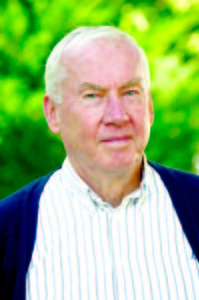Small World: National service or disserve?
By Henry Precht
BN Columnist
A few weeks back four of us — retired Foreign Service friends — got together for lunch. Some might have called it the meeting of a socialist cell, Nostalgia Division, because we spent most of the time lamenting the present and at the end divided the bill equally, notwithstanding that two members ate more than the other pair.
The issue I present here for discussion is one that we collectively agreed on: that the United States should resurrect the military draft or perhaps institute a period of required national service — with military and civilian options — for youth emerging from school. Three of our group had done military service in pre-Vietnam wars; one, the youngest, served in the Peace Corps.
We got around to the big question while addressing the prior question how to keep the United States from again falling into military conflict in the Middle East. “With maybe less than 1% of Americans directly involved in the fighting, it’s almost impossible to build popular opposition to the kind of conflicts Bush inflicted on the nation.â€
“And the only way to do that is return to the draft — this time collecting both males and females and tightening the process so that very few young people escape — no matter their wealth, influence or status as scholars.â€
“If we had a draft, rather than relying on an all voluntary force, the costs would be much lower. The nation wouldn’t have to offer incentive wages or be burdened by pension costs.â€
“For those opposed to military service, there might be civilian options as in ‘Teach for America’ or the Peace Corps. One of the products of national service should be a society that knows how the other half lives — urban/rural, rich/poor, new immigrant/old and schooled/poorly educated.â€
“Bringing together the diversity of our country could build a more cohesive union and, thereby, strengthen patriotism, take our focus off individual pursuits and shift to a larger collectivity.â€
That was the gist of our conversation. As you see, there was hardly any dissent from the main proposition. So I decided to query a relatively recent college grad and a student still in high school headed toward university.
“What do you all think of the proposition? Would two years of national service help knit together our society? Could it slow or block the march to war and occupation as in Afghanistan or Iraq? How might it affect your lives and would you willingly go along?â€
Those were the questions I put to the two of them.
High schooler: “I’m dead set against this idea. I have goals I want to accomplish — important things — and I don’t want to give up two years and lose opportunities and momentum. If you want to mix people together, pay them enough and they will come. Let the older generation tax themselves to create what they want.â€
Recent college grad: “I believe it is useful to have a period when young men, in particular, can have space to be in an environment that requires discipline, schedule and regular work. In this space, they can often ‘grow up’ and are able to imagine the kind of productive members of society they wish to be. A structured program of national service, with military and other options, can help bring focus into the lives of young people.â€
Plainly, there is a big gap between those who want to shape our society as they think it ought to be and those whose lives would be shaped in this experiment. It’s an old problem for a democracy: how those with ideals impose themselves on those who would be affected. Usually, those without political power or influence will be the losers. But not always: think of the mixed record of old folks trying to deny abortion to those most concerned, the young.
When it comes to ending the all-voluntary military, however, probably the young will have the influence to prevail, no matter what neo-socialists might prescribe.
Henry Precht is a retired Foreign Service Officer.


